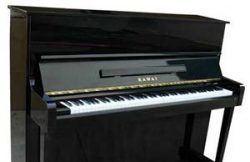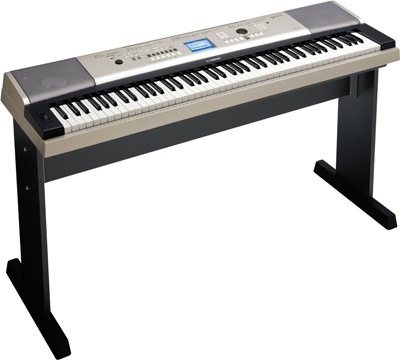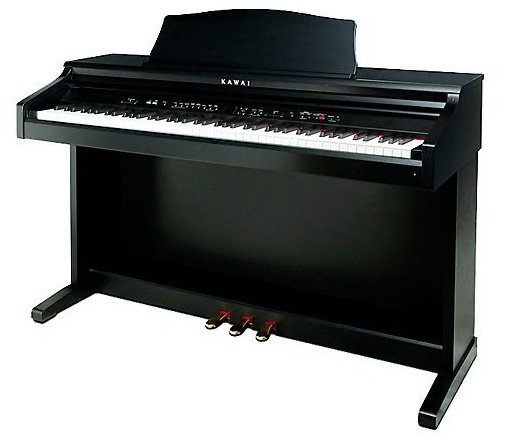Introduction
A digital piano might be one of the most significant musical instrument that you will ever invest in thus the need choose a machine that offers value for money cannot be overstated. With so many brand and models in the market, buying the best digital piano can be a bit daunting. However, the comprehensive buyer’s guide outlined below will help you buy from an informed decision.
Factors to Consider When Shopping for a Digital Piano
1. Number of Keys
Unless you are a seasoned pianist, it is always advisable to go for a piano that has 88 keys. This is the standard number of keys in most digital pianos, a fact that ensures your get the most out of the machine. While you may be tempted to go for the unit with lesser number of keys, the truth is you will be missing out on the chance to experience the real output that comes with owning a digital piano.
2. Tones and Sounds
The more tones and sounds a digital piano has, the versatile it is. Modern units come with a host of tones and sounds from orchestras to sirens and simple recordings. Go for a model that has the right amount of basic sounds that you will often use. Be sure to test the bass sounds before buying. Sample the electric keyboard settings as well and ensure they produce soft and smooth.
3. Polyphony
The number of digital tones that a digital piano can produce is of paramount importance. While standard polyphonies may be enough for your needs, it is advisable that you go with a unit that has no less than 32 notes polyphony. Sixty-four polyphonies are acceptable, one hundred and twenty-eight typically best while two hundred and fifty-six is absolute best.
4. Touch Response
Most buyers get carried away by LED lights and screens in digital pianos and tend to bypass the touch response. You may not know it, but touch response is one of the most important parts of a digital piano. You can test the response by pressing down the piano’s keys and you should feel a building resistance until the internal hammers strike the piano’s strings. A unit with good touch response ensures more nuanced dynamics besides allowing seasoned pianist finger to fly with ease across the keys.
5. Amplification
If you want to buy a machine for use at home, the best digital piano would be the one fitted with a built in an amp and speakers that produce clear sound with adequate volume. On the other hand, if you are searching for a piano for live performance or recording in studio, ensure that the machine you go for that output options for connecting external amps and PA systems as well as recording consoles.
6. Learning Tools
Most digital pianos are equipped with learning tools that include lessons for beginners and seasoned players alike. Displays that show the chords as you play them could be very helpful to pick out melodies and chords. An integrated metronome may help you enhance your rhythmic ability. There are even models that let you split the keyboard into sections such that the student and the teacher can share one keyboard while playing in identical octaves.
7. Headphone Jacks
Headphone jacks are a standard with most modern digital pianos. The headphone jack lets you play the piano without interfering with those around you. There are models that come with double headphone jacks for those who may be playing a duet. This is a particularly helpful feature when the teacher wants to listen to a student playing.
8. Sustain Pedals
Sustain pedals draw out notes that are being played when pressed down. You may choose to go for digital pianos with three pedals for increased usability. However, buy such models only if you are an experienced player and have the ability to use the other two pedals when playing.
9. Sample Rates
The sample rate in essence, refers to how realistic the sound produced by the piano is. It is advisable that you choose a machine that has multi-level sampled or stereo sampled sound. Such models will produce sounds that are identical to an acoustic piano.
10. Price
When looking for the best digital piano, considering the price that a particular model goes for is paramount. While expensive machines do not necessarily translate to high quality, you should go the one that has the most features for the price it goes for. If you are on a limited budget, choose the piano that comes with basic features that will help you attain the unit’s maximum usability. However, if you have money to spend, there is no harm in buying an expensive model only if it offers value for money.
11. Warranty
Check out the warranty period before buying the digital piano of your choice. Go for the machine with the longest warranty period because it will most likely offer the highest quality. Be sure to read and understand the terms and conditions of the warranty. Know when the warranty can be executed and when it cannot. In addition, you need to find out if your area of residence is covered with the warranty or not.
12. Customer Reviews
Just like anything else, what others have to say about a unit helps you make an informed buying decision. Choose the machine that has the most positive reviews and high ratings. When a product is rated highly by its previous users it means that they are satisfied with the product’s performance. The best place to read such reviews is on the manufacturer’s website or online stores such as Amazon. You may ask for a second opinion from friends who have owned the exact machine you want to buy as well.
Conclusion
The quality of digital pianos has improved over the last decade to a point that it may be hard distinguishing between the sounds produced by digital and acoustic piano. Besides choosing a piano, you will be required to choose a workstation and an arranger. It is, therefore, paramount that you put the above-highlighted points into consideration if you want to end up with the best digital piano. After all, you want a piano that will be worth every coin you spend on it.



